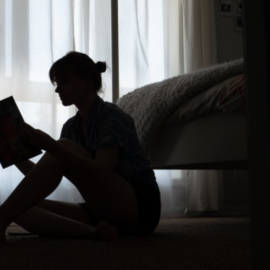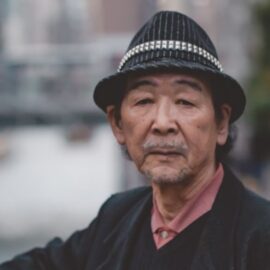

This article is an excerpt from the Shortform book guide to "Flow" by Mihaly Csikszentmihalyi. Shortform has the world's best summaries and analyses of books you should be reading.
Like this article? Sign up for a free trial here .
What are the disadvantages of living alone? What are some things you can do to enjoy solitude rather than drowning in it?
It can be easy to feel empty and aimless when you live alone and leisure activities such as watching television can make it feel worse. If you can learn to enjoy solitude by developing new skills and abilities, you will be much happier.
Keep reading to learn how to enjoy your solitude rather than wallowing in it.
The Disadvantages of Living Alone
One of the major disadvantages of living alone is the solitude that comes with it. When you’re alone with nothing to do, it’s common to feel a sense of emptiness or lack of direction. People report that their worst experiences and moods occur when they’re alone. This is because your mind harbors your fears and insecurities, and when you don’t have an activity or external input to focus on, your mind drifts toward worry and disorder.
People who live alone and don’t attend church report their worst moods of the week on Sunday mornings: With no one around, and without things they need to do, they feel anxious and restless. Typically, by midday, people decide to do something to fill the rest of the day, such as watching a football game or visiting with a relative—they create a new goal that allows them to focus their time and feel purposeful.
Here are some other responses to solitude:
- Watching TV. TV’s ability to order consciousness, even just enough to keep your mind from worrying, is one reason it plays such an important role in people’s lives.
- Using drugs. Drugs contain chemicals which seem to alter your consciousness and can make you feel more creative. However, what they’re actually doing is changing your perception of what you think you can accomplish in relation to what you can actually accomplish, which isn’t necessarily as rewarding as seeking out and rising to the challenge of new opportunities. For example, if you depend on drugs for creativity, you might gain some ideas you can use later, but you also run the risk of losing your ability to exercise your consciousness for new ideas without the use of drugs.
- Filling the time with compulsive activities, such as sex, cleaning, or gambling. Consuming pornography or having depersonalized sex allows you to order your consciousness around desires you may already have. Though it’s pleasurable and provides order, it’s not necessarily enjoyable because it doesn’t demand your attention in a way that causes you to become a more complex individual. Activities that inspire fear in exchange for pleasure are similar. For example, gambling can give you a sense of control and stave off worry, but you’re not necessarily becoming more complex.
Achieving Healthy Solitude
Since it’s so much easier to order your consciousness with other people around, how you use your alone time is the ultimate test of whether you’ve achieved order in consciousness: Do you choose an activity that merely distracts yourself from your worries, or an activity that promotes flow and allows you to grow without external inputs? If you don’t need a favorable environment to feel stable, and you don’t get bored easily, you’ve likely developed healthy creative habits and practices.
Learning to enjoy healthy solitude as a teenager can help you as an adult. If you don’t, you might grow into an adult with little patience or discipline. To avoid this, look at each challenge as an opportunity to improve your skills and learn. Specifically, judge whether your solitude provides an opportunity to work toward a goal you wouldn’t be able to work toward if you’re spending time with others. This will help you enjoy solitude rather than dreading it, and as you pursue opportunities, you’ll likely develop new skills and abilities.
Example: A woman named Dorothy chooses to live on a remote island in Northern Minnesota near the U.S. border with Canada. During the winter, she can go for months without seeing anyone. To make the most of her solitude, she has personalized the grounds with flower tubs, trees adorned with cheesy joke signs, and other decorations. She keeps herself busy with activities such as fishing, collecting eggs from her chicken coop, splitting wood, and sewing. She doesn’t mind company, but she enjoys living this lifestyle and controlling her surroundings.

———End of Preview———
Like what you just read? Read the rest of the world's best book summary and analysis of Mihaly Csikszentmihalyi's "Flow" at Shortform .
Here's what you'll find in our full Flow summary :
- Why people feel the happiest when they're in the "flow state"
- What activities and personality traits promote flow
- Why you may have a paradoxical relationship with work and leisure






